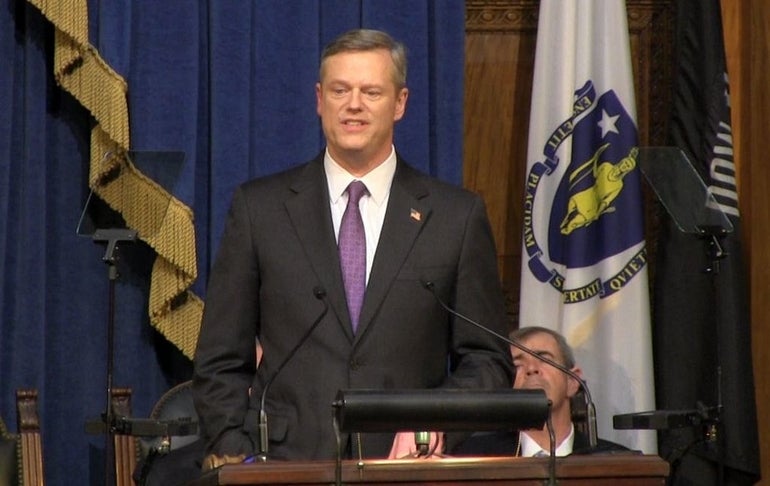Business groups see Baker assessment as MassHealth bailout tax
 Gov. Charlie Baker is proposal a $2,000 assessment for companies that don't offer health insurance to full-time employees as a way to reduce the cost of the state's Medicaid program, the State House News Service reported Tuesday.
Gov. Charlie Baker is proposal a $2,000 assessment for companies that don't offer health insurance to full-time employees as a way to reduce the cost of the state's Medicaid program, the State House News Service reported Tuesday.
Gov. Charlie Baker's plan to address rising public and private health care costs by capping provider prices and fining employers that don't offer coverage drew a strong rebuke from some in the business community Tuesday who called the latter an unfair "tax" on small businesses.
The governor's proposal to cap the rates that health care providers can charge for patient services found a more receptive audience from insurers and union workers, but some community hospital leaders said the administration should also consider a floor on provider rates to help struggling community hospitals to stabilize their operations.
Baker plans to offer the provider price cap and employer assessment as part of his fiscal 2018 budget proposal due to be filed with the Legislature later this month. The News Service first disclosed details of the Corner Office's strategy Tuesday morning.
As the two main components of a broad package of reforms, the price cap and assessment are meant by the administration to work in tandem to lower the cost of commercial plans for employers and stop the flow of full-time workers to MassHealth, a cost driver that's straining the entire state budget and choking off funds that might be invested in other public services.
Baker wants companies with 11 or more workers to pay a $2,000 penalty per full-time worker if they do not offer a qualifying insurance plan to their employees. The administration estimates the fines, which are reminiscent of a piece of the 2006 universal health law, will generate $300 million and help to offset $600 million in increased Medicaid costs projected for fiscal 2018 as a result of increased enrollment.
Jon Hurst, president of the Retailers Association of Massachusetts, lashed out at the idea of assessing employers that don't offer insurance, calling it a "discriminatory tax" on small businesses that lack the "hammer" to get workers to sign up for employer-sponsored coverage.
Hurst said that if Baker wants to assess employers that don't offer insurance the governor should, at the very least, seek a waiver from the Affordable Care Act to compel full-time workers to accept that coverage and not choose MassHealth as a cheaper alternative.
Under the Affordable Care Act, the state cannot block workers from choosing Medicaid if they qualify, even they are are also offered employer-sponsored coverage.
"If you have no tool or threats to have people take you up on your offer, you cannot slam a small business and call it an assessment. It sounds like a Medicaid bailout tax to me," Hurst said.
Hurst also scoffed at Baker's call for a moratorium on new insurance coverage requirements. "Moratorium? How about rolling them back," Hurst said, referencing the coverage mandates that can add to premiums costs for small business owners.
Associated Industries of Massachusetts also referred to the employer assesment as a tax and an "unfair way to close a deficit in MassHealth."
"The proposal would force employers to foot the bill for a problem they did not create," Katie Holahan, associate vice president for government affairs at AIM, wrote in a blog post. Holahan also said AIM supports provider price caps and a moratorium on new insurance mandates.
On the issue of provider price caps, many stakeholders said they were anxious to see further detail, including where the caps would be set and if they would be a percentage of Medicare rates.
The state's largest hospitals have been resistant in the past to the idea of rate setting or regulation by the state, but the Massachusetts Health and Hospital Association refrained from passing direct judgment Tuesday on Baker's proposal.
Michael Sroczynski, the MHA's vice president of government and advocacy, said that Congress's efforts to repeal the Affordable Care Act give "reason to be concerned about the future," and the group looks forward to working with the governor and Legislature.
"We are anxious to learn more about the Baker Administration's proposed changes to employer responsibilities, provider payments, and any changes in MassHealth benefits. Hospitals and all healthcare stakeholders have a shared interest in assuring the stability and sustainability of MassHealth," Sroczynski said in a statement.









0 Comments